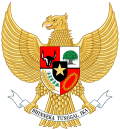Notable people



Notable Indonesians in the United Kingdom include:
- Elkan Baggott, footballer
- George Brown, footballer
- James Chau, journalist
- Theresa Cheung, spirituality writer
- Huge Davies, comedian
- Rosalie Deighton, musician
- Joe Ferguson, footballer
- Violet Gordon-Woodhouse, keyboard player
- Justin Hubner, footballer
- Joanna Natasegara, filmmaker
- Devon van Oostrum, basketball player
- Sri Owen, food writer
- Hannah Al Rashid, actress and model
- Sinta Tantra, artist
- Benny Wenda, political activist
- Han Willhoft-King, footballer
